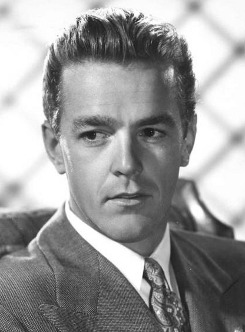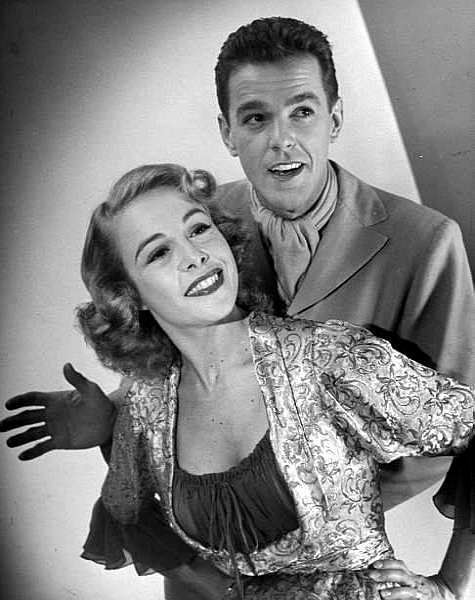Contents
Gower Champion Net Worth
How Much money Gower Champion has? For this question we spent 26 hours on research (Wikipedia, Youtube, we read books in libraries, etc) to review the post.
The main source of income: Actors
Total Net Worth at the moment 2024 year – is about $121,4 Million.
Youtube
Biography
Gower Champion information Birth date: June 22, 1919, Geneva, Illinois, United States Death date: August 25, 1980, New York City, New York, United States Birth place: Geneva, Illinois, USA Height:5 10? (1.79 m) Profession:Actor, Director, Soundtrack Spouse:Karla Russell Champion (m. 1976–1980), Marge Champion (m. 1947–1973) Children:Gregg Champion, Blake Champion Parents:John W. Champion, Beatrice Carlisle
Height, Weight
:How tall is Gower Champion – 1,73m.
How much weight is Gower Champion – 75kg
Photos




Wiki
Dancer, actor, choreographer and director. Joined in 1945 with Marjorie Belcher (aka Marjorie Bell) to form the dance team of Gower & Bell, renaming the team Marge and Gower Champion upon their marriage.
Biography,Early yearsChampion was born in Geneva, Illinois, the son of John W. Champion and Beatrice Carlisle. He was raised in Los Angeles, California, where he graduated from Fairfax High School. He studied dance from an early age and, at the age of fifteen, toured nightclubs with friend Jeanne Tyler billed as Gower and Jeanne, Americas Youngest Dance Team. In 1939, Gower and Jeanne danced to the music of Larry Clinton and his Orchestra in a Warner Brothers & Vitaphone film short-subject, The Dipsy Doodler (released in 1940).CareerDuring the late 1930s and early 1940s, Champion worked on Broadway as a solo dancer and choreographer. After serving in the U.S. Coast Guard during World War II, Champion met Marjorie Belcher, who became his new partner, and the two were married in 1947.In the early 1950s, Marge and Gower Champion made seven film musicals: Mr. Music (1950, with Bing Crosby), the 1951 remake of Show Boat (with Howard Keel and Kathryn Grayson), 1952s Lovely to Look At (a remake of Roberta, also with Keel and Grayson), the autobiographical Everything I Have Is Yours (1952), Give a Girl a Break (1953, with Debbie Reynolds and Bob Fosse), Jupiters Darling (1955, with Keel and Esther Williams), and Three for the Show (1955, with Betty Grable and Jack Lemmon). All were made for Metro-Goldwyn-Mayer except Mr. Music (Paramount) and Three for the Show (Columbia).Throughout the 1950s, they performed on a number of television variety shows, and in 1957 they starred in their own short-lived CBS sitcom, The Marge and Gower Champion Show, which was based on their actual career experiences.In 1948, Champion had begun to direct as well, and he won the first of eight Tony Awards for his staging of Lend an Ear, the show that introduced Carol Channing to New York City theater audiences. During the 1950s, he only worked on two Broadway musicals — choreographing Make a Wish in 1951 and directing, staging, and starring in 3 For Tonight in 1955 — preferring to spend most of his time in Hollywood. However, in the 1960s, he directed a number of Broadway hits that put him at the top of his profession.He had a solid success in 1960 with Bye Bye Birdie, a show about an Elvis-like rock star about to be inducted into the army. The show starred relative unknowns Chita Rivera and Dick Van Dyke along with a youthful cast. It ran 607 performances and won four Tony awards, including Best Musical and two for Champions direction and choreography. Next came Carnival! in 1961, which ran 719 performances and garnered seven Tony nominations, including one for Champions direction.In 1964, he directed one of Broadways biggest blockbusters, Hello, Dolly!. It ran for 2844 performances — almost seven years. Starring Carol Channing, it is best remembered for the title number, where Dolly is greeted by the staff of a restaurant after having been away for years. The show won ten Tony Awards, including Best Musical, as well as two for Champions direction and choreography.Champion had his fourth consecutive hit musical with I Do! I Do! in 1966. It featured a cast of two — veterans Mary Martin and Robert Preston — playing a couple seen throughout the years of their marriage. The show ran for 560 performances and got seven Tony nominations, including one for Champions direction.His next show, The Happy Time in 1968, broke his streak. It had a relatively disappointing run of only 286 performances. This would be followed by many more disappointments and worse. In the 1970s, Champion directed minor hits (Sugar in 1972 and the revival Irene in 1973), flops (Mack & Mabel in 1974) and complete disasters (Rockabye Hamlet — seven performances in 1976 — and A Broadway Musical, running only one night in 1978, not to mention Prettybelle, which closed out of town in 1971). On top of all this, he and Marge were divorced in 1973.After the failures of the previous decade, Champion was able to make a comeback with his longest-running show. In 1980, he choreographed and directed a stage adaptation of the movie classic, 42nd Street. It won the Tony for Best Musical, and Champion was nominated for his direction and choreography, winning for the latter. The show ran for 3,486 performances, but Champion did not live to see any. After numerous curtain calls on opening night, producer David Merrick stunned the cast and audience by announcing Champion had died earlier that day.Personal lifeChampion was married in 1947 to actress Marjorie Celeste Belcher, with whom he had two sons: Blake and actor Gregg Champion. In 1976 he married again to Karla Russell, who survived him.
Summary
Wikipedia Source: Gower Champion